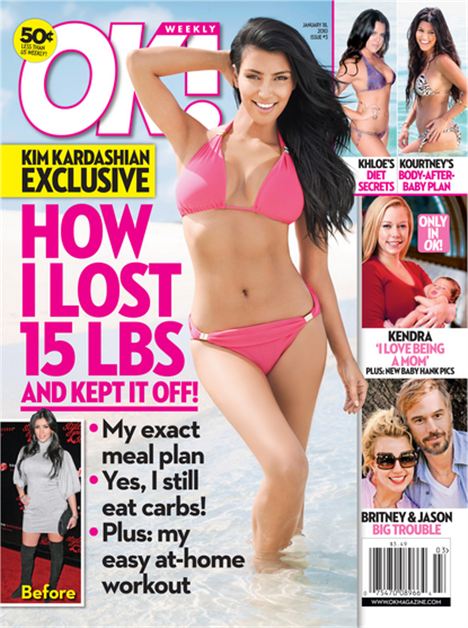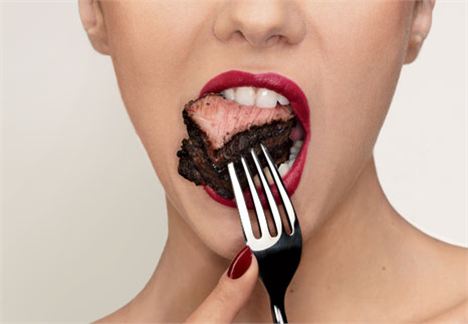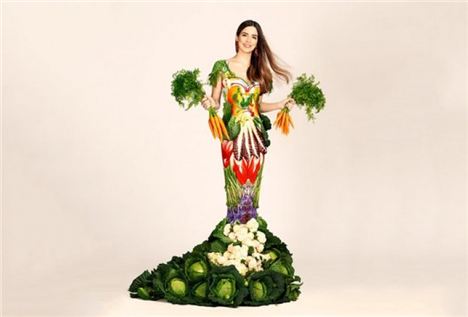SO HERE we are, nearing the end of January, and the bewildering array of 'ultimate' diet plans and predictable advice on how to lose weight are beginning to simmer down. For a lot of us, January is simply four weeks of diet trials and a lot of errors. It's no wonder Brits are said to suffer 'the January Blues' - maybe we're all starving.
This is idiocy on a plate - or rather, in a glass.
To help you on your way to a healthier 2015 beyond January, Body Confidential's resident nurtitionist Clare Jones has ranked popular weight-loss diets from the most effective to the downright unhealthy. Five stars for the healthiest.
 Typical magazine cover with the bewildering array of 'ultimate' diet plans
Typical magazine cover with the bewildering array of 'ultimate' diet plans
MOST EFFECTIVE
1. Intermittent Fasting/ The 5:2 Diet | *****
There are several variations on this theme but all involve one or more days where your food intake is reduced ('fasting'). My preferred version of this approach is the original 2 Day Diet Cookbook, based on research done by Dr Michelle Harvie and Professor Tony Howell, part of the Genesis Breast Cancer Prevention team, based locally at Wythenshawe Hospital (If you buy their book, the proceeds all go back into the charity to fund further research). The diet includes five days of Mediterranean-style healthy eating and two carbohydrate-restricted days and uses portions rather than calories to measure food intake.
The other versions of this approach would only get four stars as they encourage you to eat 'whatever you like' on the five non-fasting days, which doesn't feel like good nutrition to me.
2. The Paleo Diet | ****
Also known as 'the Caveman Diet', this approach asks you to go back to basics and eat the diet we would have eaten back when we were all living in caves. There are several different variations of this one too (mostly because no-one is quite sure exactly what we ate back then) but all involve cutting out modern, processed food, which can only be a good thing. It encourages eating more fruit and vegetables but can be quite meat-heavy. Most versions exclude sugar, grains, beans and lentils and often dairy is also cut out. It's reasonably healthy but can lack variety and may be difficult to follow when you're not eating at home.
3. Atkins Diet | ***
The original low-carb diet has waxed and waned in popularity over the years but remains in the best-seller lists. It starts with a high protein, high fat, low carbohydrate phase for quick weight loss and then introduces more variety including fruit, vegetables and some carbohydrates. It is possible to eat a healthy diet in phase two of Atkins but I find that most people get stuck in phase one or the 'cheese and meat' phase, which is neither healthy nor sustainable.
4. Low Calorie Diet | ***
Switching to a low calorie diet is a good starting point for many people. I've given it three stars as it's easy to find information on how to use it and is flexible enough to allow you to eat a pretty healthy diet but, in theory, you could use up all your calorie allowance on Mars bars...
I'm not really a fan of calorie-counting as it's very imprecise (calorie counts for foods can only ever be averages) and doesn't take into account the way different types of food are metabolised. It can also become obsessive and it's difficult to eat out without anxiety if you're counting calories.
WORST
5. Red Carpet Detox Diet | **
The name alone is contentious but the Red Carpet Detox Diet mostly involves cutting out various dietary 'nasties' and increasing fruit and vegetables, often via juices and smoothies. This particular version is allegedly followed by various Hollywood stars preparing for a 'red carpet' event and is only intended to be used for a short period of time. That's the major issue with this type of diet: they may help to kick-start your weight-loss but are not appropriate nor sustainable for long-term use.
6. Juice Fast | **
Juice fasts (or cleanses or detoxes) rely on a short programme of freshly squeezed juices and/or smoothies to kick-start weight loss. It may be useful for introducing fruit and vegetables into the diet but not sustainable long-term.
7. Cabbage Soup Diet | *
This diet, or any other diet that largely limits your food intake to one particular food (e.g. Grapefruit diet, Special K diet, etc), I'd give one star. While it does include a vegetable but it otherwise has little to recommend it. It is yet another 'crash diet' and not sustainable for any length of time. It's also so boring it's unlikely that you would want to.
8. Maple Syrup Diet | no stars
The Master Cleanse diet, allegedly used by Beyoncé to slim down for her role in Dreamgirls, involves drinking a concoction of maple syrup, lemon juice, cayenne pepper and water and nothing else (if you are on the 'full' version). This is idiocy on a plate - or rather, in a glass.
9. Baby Food Diet | no stars
More idiocy. Baby food is for babies.
10. The Honey Diet | no stars
Your normal sugar intake is replaced by honey for its 'special metabolic properties' which 'help you burn fat while you eat'. This is nonsense: honey is a sugar and eating more of it will encourage weight gain, not weight loss.
In short, quick fixes may help you drop a few pounds early on but they're not sustainable in the long run.
The advice given here is not intended to replace medical advice. Always consult your GP if you are concerned about your health.
Clare Jones, BA(Hons), Dip ION, mBANT NTC & CNHC Registered
Nutritional Therapist.
Follow Clare on Twitter @ClareJonesNutri and Facebookwww.facebook.com/ClareJonesNutritionalTherapy







